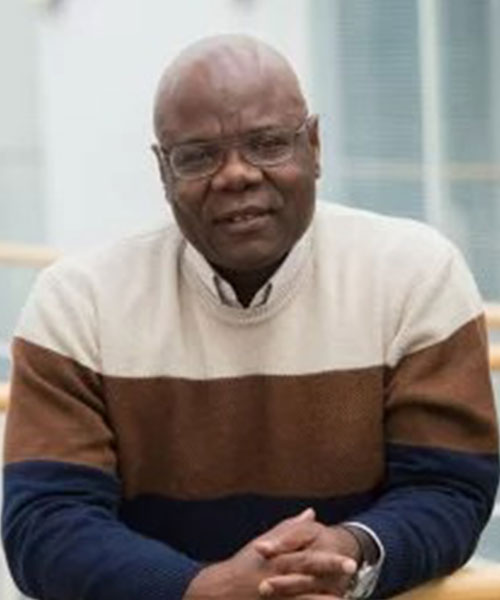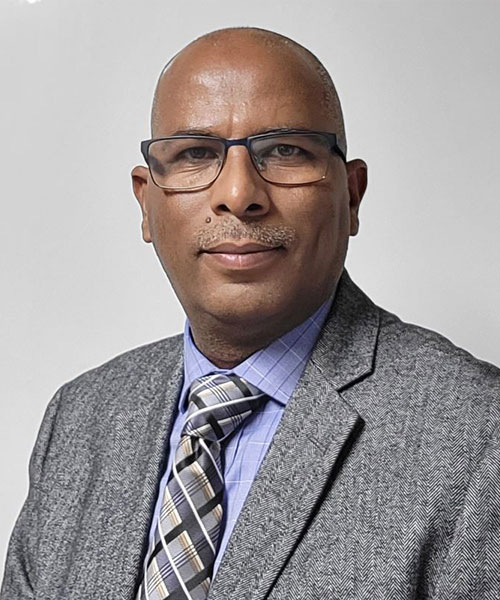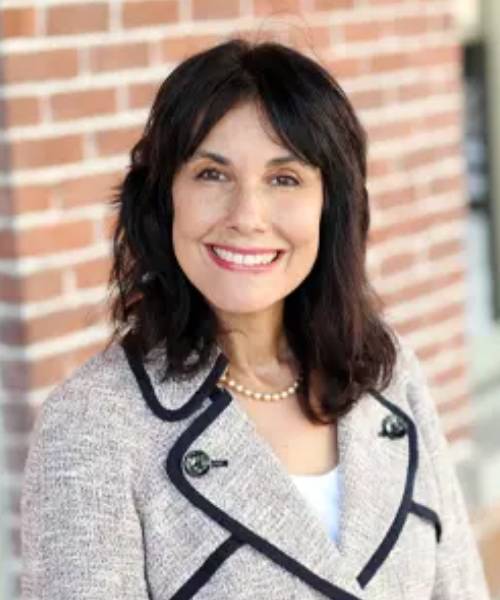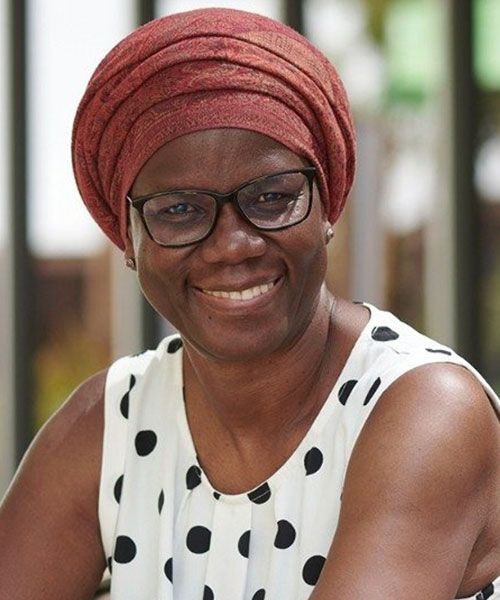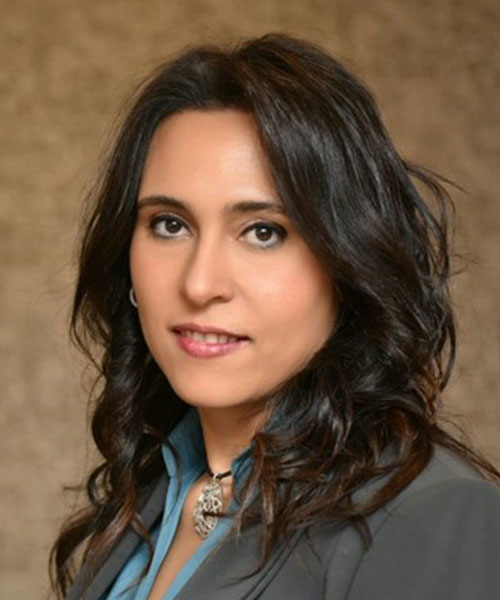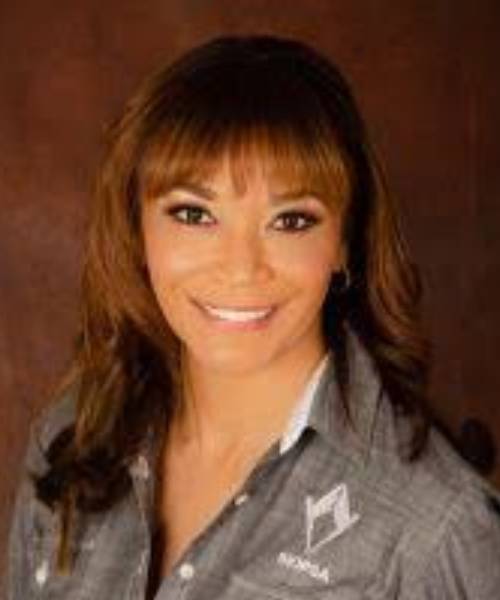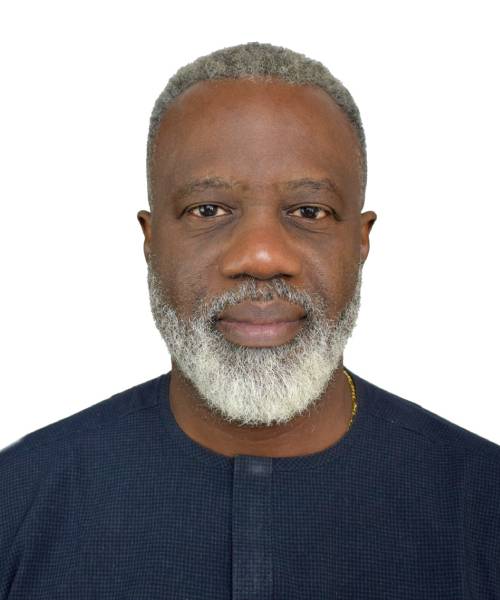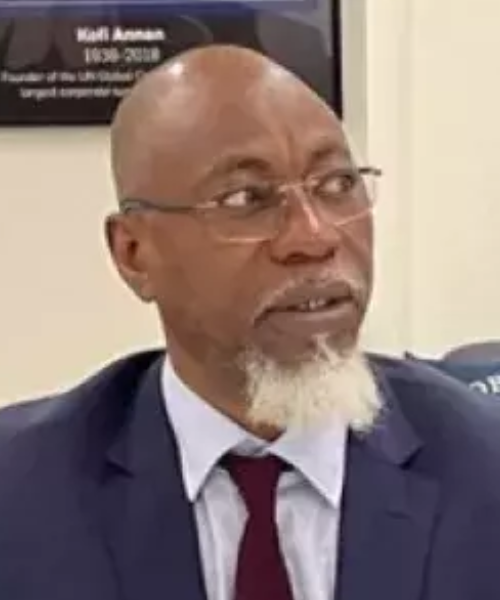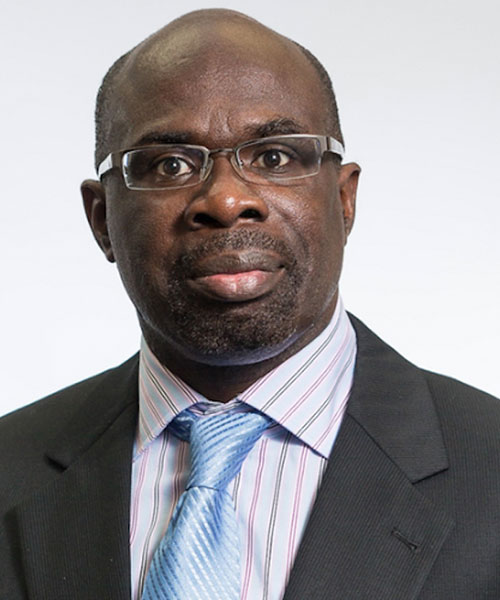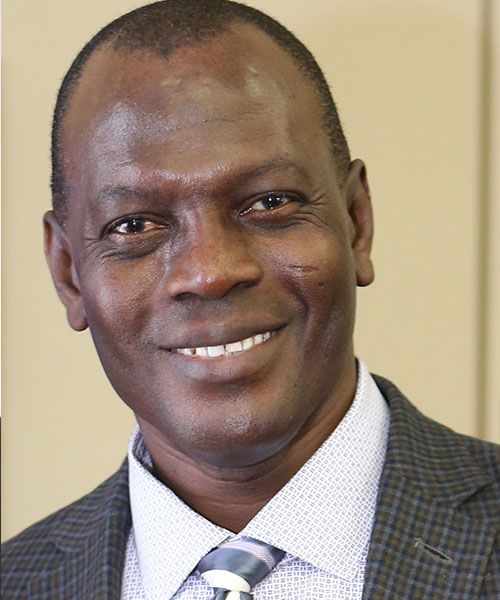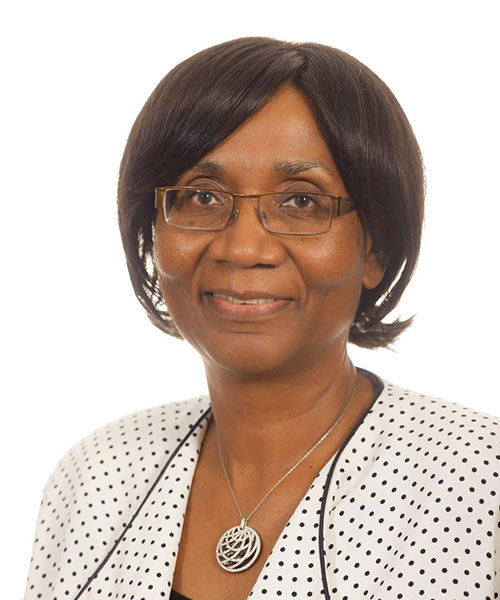- Home
- Governance
Governance
Prof. Judy N. Muthuri, PhD, (University of Nottingham, UK)
Position: President
Categories: Executive Committee
Current Affiliation
Mona School of Business and Management, The University of the West Indies, Jamaica
Professional Profile
Research Interest
Prof. Muthuri’s research interests are in Business and Society covering a range of topics including responsible mining; stakeholder engagement; theorising corporate responsibility and sustainability; multi-stakeholder partnerships; corporate social investments; education for sustainable development; and participatory methodologies. She is the Section Editor, Global Issues and Business Ethics of the Journal of Business Ethics and serves on the editorial boards of a number of journals.
Prof. Samuel Aryee, PhD, (McMaster University, Canada)
Position: Vice President
Categories: Executive Committee, Program
Current Affiliation
University of Surrey, UK
Professional Profile
Research Interest
Prof. Aryee’s research interests include strategic human resource management, services management, organizational justice, work-family interface, employee-organization relationship, and workplace safety. He is currently an associate editor of AJOM and serves on the editorial boards of several journals.
Prof. Amanuel Tekleab, PhD, (University of Maryland, College Park)
Position: Treasurer
Categories: Executive Committee
Current Affiliation
Wayne State University, Detroit, MI, USA
Professional Profile
Research Interest
Prof. Tekleab’s research interests include employment relationships (psychological contracts, LMX, POS, Trust), leadership, idiosyncratic (individualized) deals, teams and team process, justice, organizational change, and corporate social responsibility (CSR). He is currently Associate Editor of Group & Organization Management and Journal of Business Research, and he serves on the editorial boards of other journals and reviews for several journals.
Dr. Bella L. Galperin, PhD, (Concordia University)
Position: Deputy Treasurer
Categories: Executive Committee
Current Affiliation
The University of Tampa
Professional Profile
Research Interest
Galperin’s interests include leadership (in Africa and the African diaspora), international management, ethics, and workplace deviance- destructive and constructive. She co-authored two books entitled, Essentials of Leadership in Africa (shortlisted for BCA African Business Book of the Year Awards 2025) and LEAD: Leadership Effectiveness in Africa and the African diaspora.
Dr. Julie Nyanjom, PhD, (University of Pretoria, South Africa)
Position: Secretary
Categories: Executive Committee
Current Affiliation
School of Business and Law, Edith Cowan University, Western Australia
Professional Profile
Research Interest
Dr. Nyanjom conducts research in organizational behaviour, and explores emotions, personal and professional learning and development, inclusion, and sustainable management practices and their related impacts on organisations and society. Julie is also an active researcher in education pedagogy, with specific interest in impacts of emotions in Online Learning Environments. She is Associate editor of Higher Education Research and Development (HERD) journal and serves on the editorial boards of several other journals
Dr. Nathaniel Adebayo, PhD, (Ladoke Akintola University of Technology, Nigeria)
Position: Deputy Secretary
Categories: Executive Committee
Current Affiliation
The Polytechnic, Ibadan, Nigeria
Research Interest
Dr Adebayo’s research interests are in Entrepreneurship, Poverty Dynamics, Informal Business Sector, Entrepreneurship Education, Gender Issues in Entrepreneurship, Sustainable Development and Family Business. He is an Associate Editor of Recoletos Multidisciplinary Research Journal (RMRJ) of San Jose University, Cebu City, the Philippines. He is also a member of Editorial Boards of several other journals.
Dr. Sherwat Elwan Ibrahim, PhD, (Stevens Institute of Technology, NJ, USA)
Position: Program Chair
Categories: Executive Committee, Program
Current Affiliation
The American University in Cairo, Egypt
Professional Profile
Research Interest
Dr. Ibrahim’s research interests include sustainable supply chain management, responsible sourcing, global value chain governance and resilience, and green technology management and adoption. She also focuses on areas related to Africa sustainable development and responsible management education in Africa. She is Associate Editor for IEEE Engineering Management Review.
Dr. Natasha Winkler-Titus, PhD, (University of Pretoria, South Africa)
Position: Deputy Program Chair
Categories: Executive Committee
Current Affiliation
Stellenbosch University Business School, Cape Town, South Africa
Professional Profile
Research Interest
The central phenomenon of interest is to understand the changing world of work as a grand challenge and its impact on organizational process and practice. Therefore, my central research goal is to build theory in responsibly lead organizational change as an inclusive practice in the context of digital disruption.
Dr. Guy B. N’Jambong, PharmD, (Paris-Saclay University, FR)
Position: Communication Director
Categories: Executive Committee
Current Affiliation
World Health Organization, Dakar, Senegal
Professional Profile
Research Interest
Dr. N’Jambong’s research interests are in agencification and serialization in pharmaceutical systems and value chains, focusing on governance, regulation, production, and supply chain to improve access to health products and advance universal health coverage in Africa.
Prof. Motshedisi Mathibe, PhD, (University of Pretoria)
Position: Executive Director 1
Categories: Executive Committee
Current Affiliation
Gordon Institute of Business Science (GIBS), University of Pretoria
Professional Profile |LinkedIn
Research Interest
My research explores women entrepreneurship, circular economy practices, and financial inclusion within emerging markets. I focus on the dynamics of informal and township economies, examining how AI and digital transformation can empower entrepreneurs. My work integrates sustainability, innovation, and inclusive growth to advance entrepreneurial ecosystems in Africa and beyond.
Prof. Mahamadou Biga Diambeidou, PhD, (Catholic University of Louvain, Belgium)
Position: Executive Director 2
Categories: Executive Committee
Current Affiliation
University of Oxford and Catholic University of Louvain
Professional Profile
Research Interest
Prof. Biga-Diambeidou’s current research interest lies with university-led sustainable innovative entrepreneurship as a catalyst within entrepreneurial ecosystems; the co-evolution of institutions, policy, and innovation for climate and development transitions; and advancing globally relevant management scholarship through collaborative research platforms such as the SIEWA Initiative. He is Associate Editor of the Journal of African Business and serves on multiple editorial boards.
Prof. Moses Acquaah, PhD, (University of Wisconsin-Milwaukee)
Position: Immediate Past President (2023 – 2025)
Categories: Executive Committee, Past Presidents
Current Affiliation
University of North Carolina at Greensboro, USA
Professional Profile
Research Interest
Prof. Acquaah’s research interests include social capital and networking in emerging economies; competitive strategy in emerging economies; family business and entrepreneurship in emerging economies; management and strategic control in organizations; and transfer, diffusion, and management of innovation. He is currently the Editor-in-Chief of the Journal of African Business and serves on the editorial boards of several journals.
Prof. Moses Acquaah, PhD, (University of Wisconsin-Milwaukee)
Position: Immediate Past President (2023 – 2025)
Categories: Executive Committee, Past Presidents
Current Affiliation
University of North Carolina at Greensboro, USA
Professional Profile
Research Interest
Prof. Acquaah’s research interests include social capital and networking in emerging economies; competitive strategy in emerging economies; family business and entrepreneurship in emerging economies; management and strategic control in organizations; and transfer, diffusion, and management of innovation. He is currently the Editor-in-Chief of the Journal of African Business and serves on the editorial boards of several journals.
Prof. Baniyelme D. Zoogah, PhD, (The Ohio State University, USA)
Position: Past President (2018 – 2022)
Categories: Ex Executive Committee, Past Presidents
Current Affiliation
McMaster University
Professional Profile
Research Interest
Prof. Zoogah teaches organizational behavior and human resource management courses at the DeGroote School of Business, McMaster University, Hamilton, Ontario, Canada. He has held visiting professorship positions in Ghana and South Africa. His research is at the meso level which combines micro and macro issues related to development of individuals, groups, and organizations as they pertain to competencies, strategies, institutions, and resources. His current research focuses on strategic followership, corporate environmental sustainability, and anamnestic scholarship. In addition to publishing in, and reviewing for, several journals, he has authored four books: (1) Strategic Followership: How Followers Impact Organizational Effectiveness; (2) Theoretical Perspectives of Strategic Followership; (3) Ethnos Oblige: Theory and Evidence; and (4) Managing Organizational Behavior in the African Context. In addition, he has edited Advancing Research Methodology in the African Context: Techniques, Methods, and Designs.
Prof. Stella M. Nkomo, PhD, (University of Massachusetts, Amherst)
Position: Founding President (2011 – 2017)
Categories: Past Presidents
Current Affiliation
University of Pretoria, South Africa
Research Interest
Professor Nkomo is a highly accomplished thought leader in Human Resource Management. She specialises in diversity, difference, race and gender in organizational settings particularly examining how marginalised voices are excluded. Her work has transformed management studies by centring race, gender, and inclusion—especially in African contexts. A respected mentor and institution-builder, she has created lasting scholarly platforms and shaped generations of academics. Her numerous awards and leadership roles underscore her global standing and her commitment to equity in education and organizations


The Africa Academy of Management (AFAM) is a premier association for academics focused on management in Africa, fostering collaboration among scholars in Africa and the Diaspora.


